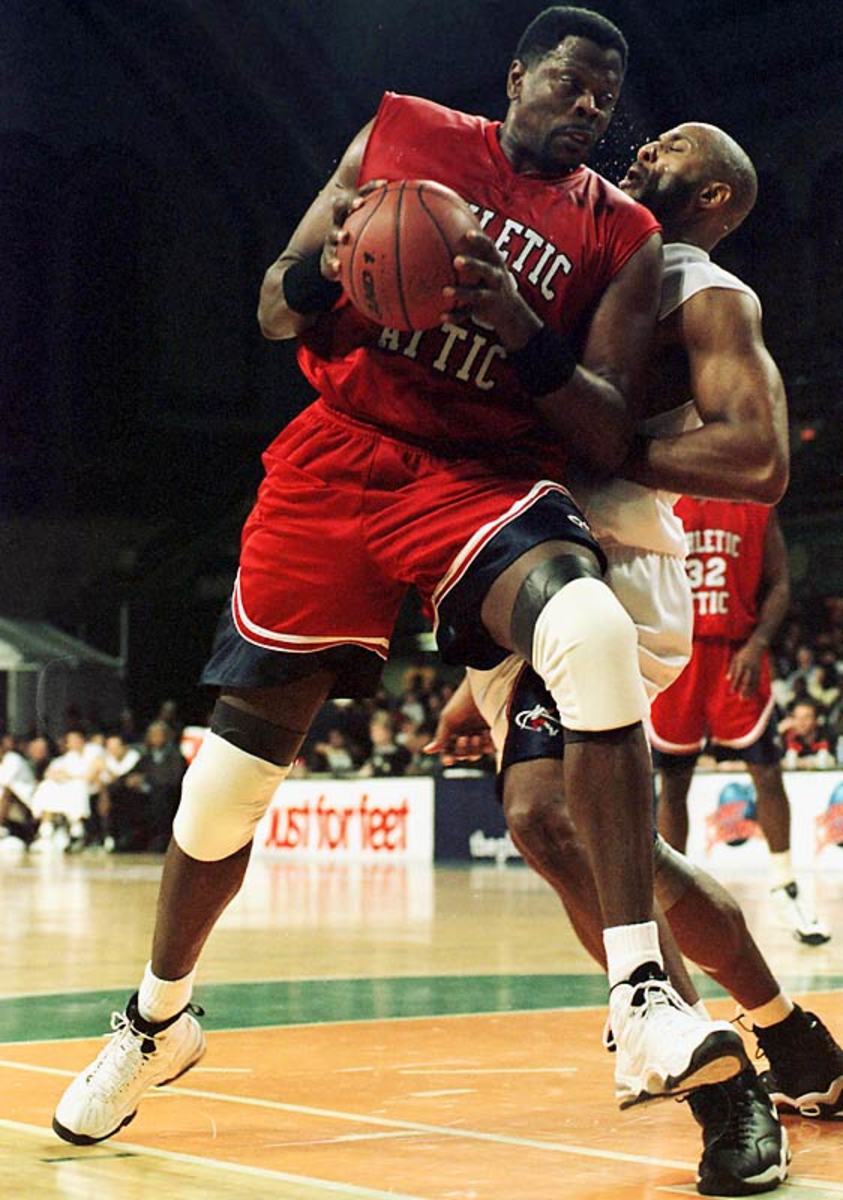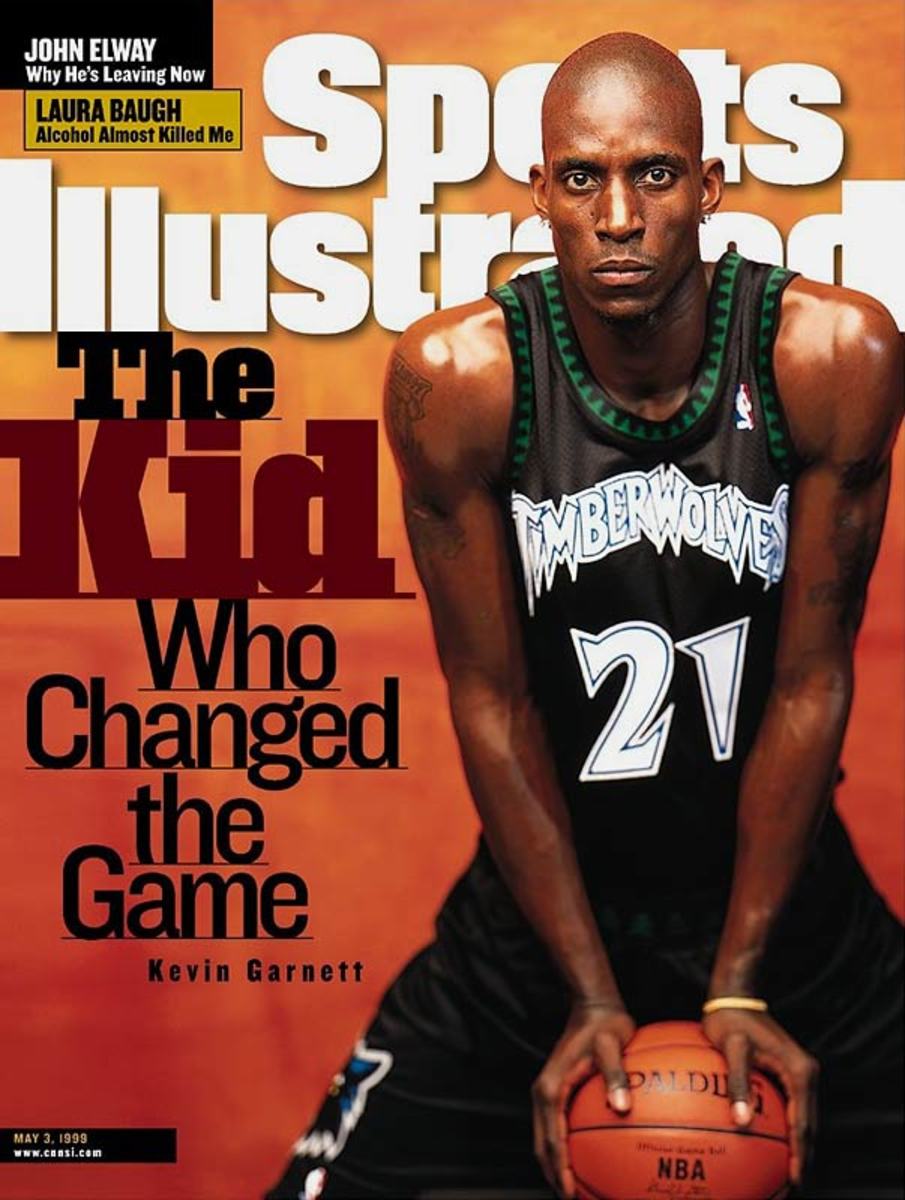Revisiting the NBA's 1998 Lockout

Revisiting the NBA's 1998 Lockout
Grizzly situation

Before the 2011 lockout, the NBA had gone 13 years without a work stoppage. The last stalemate spanned 191 days and one David Stern beard. The league and the players' union finally reached an agreement on a new collective bargaining agreement in January 1999, two months after the normal start of the regular season. Here is a look back at some of the memorable (and dubious) moments before, during and after the standoff.
Money: It comes and goes

The locked-out players didn't exactly curry sympathy from frustrated fans with some of their public comments. Exhibit A: Patrick Ewing. The union president, in discussing a charity game in Atlantic City, N.J., involving former Dream Team members that was to benefit UNICEF as well as needy NBA players, said pro athletes "make a lot of money, but they also spend a lot of money." At the time, the NBA's minimum salary was $275,000.
Car trouble

Before Patrick Ewing's public relations gaffe, there was Kenny Anderson's. The 28-year-old Celtics point guard, set to make $5.8 million in 1998-99 before the lockout hit, joked to The New York Times that he was thinking about selling one of his eight cars while awaiting the NBA's return. "I have to start getting tight," Anderson said.
Hill's reputation takes a hit

Grant Hill, a young star with the Pistons in the late '90s, was criticized for not taking a higher profile during the six-month lockout. His Sprite commercial with Tim Duncan, in which the two spoofed their unemployment and lobbied viewers to call 1-800-TALL-MEN to hire them for odd jobs, also didn't sit well with fellow players. One player told the Detroit Free Press that rivals would be "out to get" Hill and "take some shots" at him on the court.
The game-changer

Many trace the lockout to the six-year, $126 million contract two-year pro Kevin Garnett signed with the Timberwolves in October 1997 -- the richest multiyear package in team sports history. "This was the contract that changed the landscape," former NBA deputy commissioner Russ Granik told SI after the lockout. "This was the one where owners said something had to be done." As part of the post-lockout CBA, the NBA capped the maximum salary ($14 million for players with 10 years' experience, $11 million for players with six to nine years and $9 million for players with one to five years) and implemented a wage scale for players' first four years in the league.
Assist from Shaq

Shaquille O'Neal was credited with playing a key role in persuading players' association director Billy Hunter to settle the dispute -- even though Shaq lost a lot of leverage with the new CBA. Shaq had the option to opt out of his contract the following year, and under the old rules, he could have re-signed with the Lakers for any amount. But the new agreement limited him to a maximum first-year salary of $11 million and 12.5 percent annual raises thereafter, a package worth less than the seven-year, $121 million deal under which he was operating.
Arrivederci, NBA

Two days before the lockout ended, 1998 No. 1 pick Michael Olowokandi of the Clippers signed with the Italian League's Kinder Bologna. The arrangement worked out well for Olowokandi (he was paid $1 million for his six-week stay) but left the Clippers without the 7-footer for training camp and the first week of the regular season. Not that it mattered all that much: The Clippers went 9-41 in the truncated season, with Olowokandi averaging 8.9 points and 7.9 rebounds in 45 games.
Spree's fresh start

The end of the lockout touched off a flurry of personnel activity, including Scottie Pippen's move to Houston through a sign-and-trade deal involving Chicago and the Knicks' acquisition of Latrell Sprewell, who hadn't played since choking Warriors coach P.J. Carlesimo in December 1997. Sprewell enjoyed a honeymoon period in New York, helping to lead the Knicks to the NBA Finals as the eighth seed in the Eastern Conference.
MJ retires (again)

The NBA was forced to launch the post-lockout era without Michael Jordan, who retired (for a second time) a week after the two sides reached agreement to save the season. MJ's farewell, combined with Scottie Pippen's move to Houston and Phil Jackson's departure, left the Bulls in the hands of Tim Floyd, Toni Kukoc and Ron Harper. The Bulls went 13-37 that season, the first of six consecutive years with a winning percentage below .370.
Spurs break through

After a 50-game regular season that didn't start until Feb. 5, the Tim Duncan- and David Robinson-led Spurs beat the Knicks in the Finals to win the first of their four championships. Some critics considered the championship tarnished because it followed a shortened season; Phil Jackson, for one, suggested it be accompanied by an asterisk, a remark that helped fuel the Spurs-Lakers rivalry when the Zen Master became Los Angeles' coach in 1999. Steve Kerr, a member of the title team, responded, "They still gave us a ring, and there's no asterisk on the ring."
